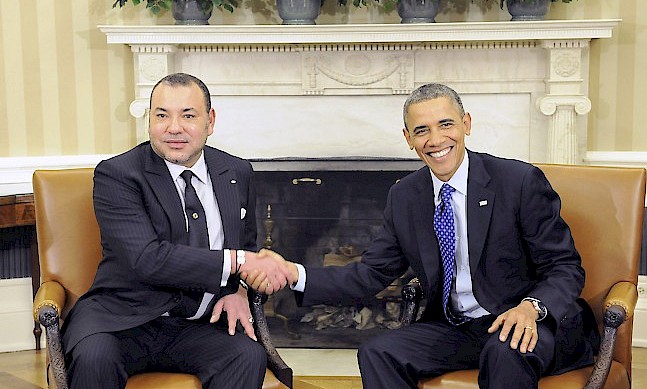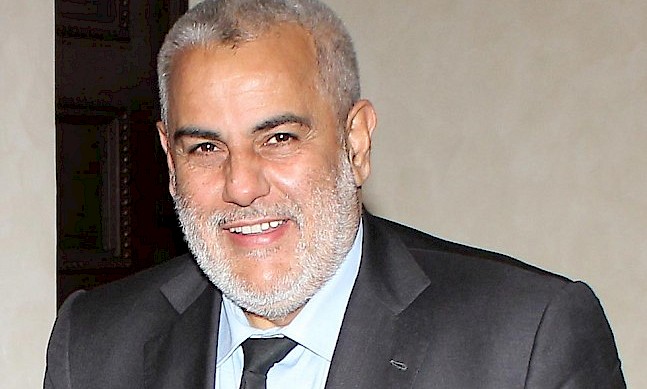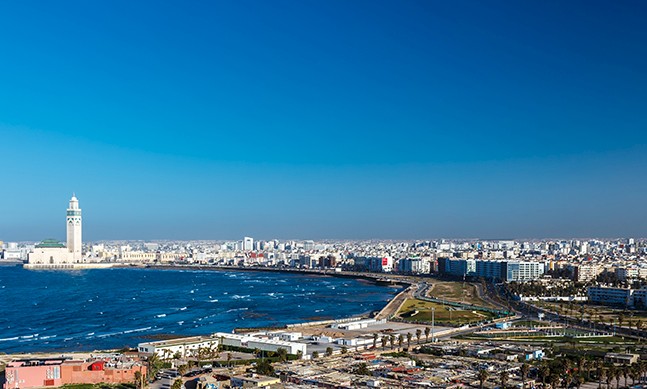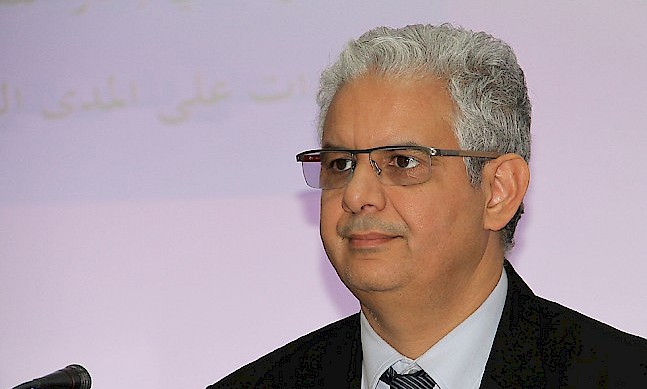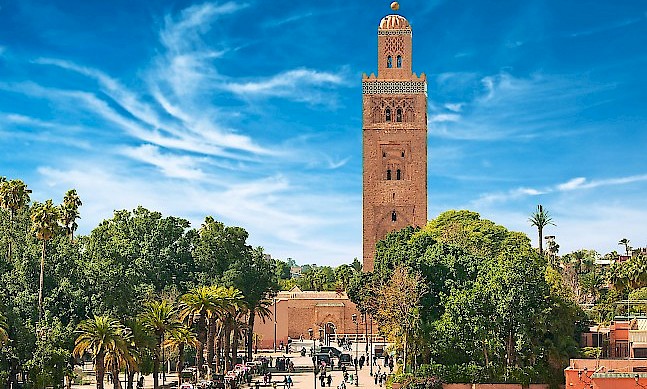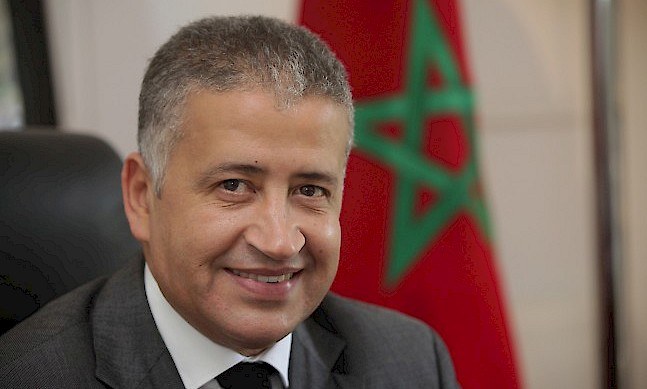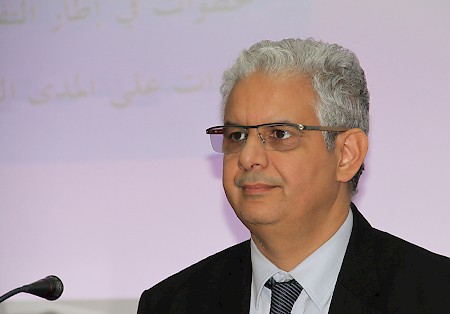 Photo: CESE
Photo: CESE
The Moroccan economist and politician, Nizar Baraka, former minister of economy and finance, was appointed by King Mohammed VI in 2013 to head the CESE (Economic Social and Environmental Council). He met with The Report Company to discuss the key elements of the economic, political and social transition the North African country is currently undergoing, and outlined the various projects overseen by the CESE.
The Report Company : Morocco is currently the largest recipient of foreign direct investment in the region, reflecting the sweeping changes it has implemented over the last decade and the opening of its economy to the world. How would you appraise Morocco’s progress?
Nizar Baraka: Morocco is moving forward with determination, under the leadership of His Majesty King Mohammed VI, strengthening political stability and anchoring democracy as per the 2011 constitution. Our country, as part of its democratic transition, has initiated a broad societal reconciliation, especially with the creation of the Equity and Reconciliation Commission, the consolidation of the national system of human rights, the reforms affecting the status of women (the nationality code and the family code), and also through a process of regional reconciliation in order to reduce social and regional inequalities.
There is a real momentum to create poles of competitiveness and regional clusters. And as part of the new constitution, democracy is being strengthened by the recognition of a new generation of human rights, as well as the multiculturalism and linguistic diversity we have within the country. Furthermore, there is a responsible and sustainable development vision in place for the future generations, thanks to the new Environmental Charter.
“I also want to reassure foreign investors that in Morocco, there is no need for a Moroccan partner; all investors are welcome”Tweet This
On the economic front, Morocco has undertaken several reforms and executed sectoral strategies that transform the structure of its economy and increase its resilience to environmental risks and the vagaries of the global economic situation. Thus, since 2000, the country has not only had no recession, but has in fact posted sustained growth. The sustainable macroeconomic framework represents a solid foundation, despite skyrocketing oil prices since 2008 which have had an impact on our trade balance, and despite the difficulties faced by our main trading partners in the EU.
Our assets are the reforms and the actions taken to strengthen human capital, the business climate, our infrastructure and our productive base. They have allowed us to improve investor confidence and the confidence of international bodies, such as the ratings agencies who have granted Morocco an investment grade rating. Let’s not forget in this regard that Morocco is among the few countries to have benefitted from a precautionary and liquidity line from the International Monetary Fund (IMF), reflecting the health of our economic fundamentals. We benefit today from the growing support of the World Bank, the African Development Bank, the European Bank for Reconstruction and Development (EBRD); all of which is tangible proof of our ability to realize the reforms necessary for the transformation of our economy.
Furthermore, Morocco has made the wise choice to open its economy thanks to free trade agreements with more than 55 countries including the European Union, the United States, Turkey and some Arab countries, with other agreements currently being negotiated with many countries in Africa. Our ambition is to consolidate the role of Morocco as an investment and export platform for Africa, Europe, the United States and the Gulf countries by strengthening Morocco’s intrinsic interconnection capacity as a hub in sectors such as agriculture, finance, industry, maritime, air, electricity but also culture, academia, medicine and services.
As part of this multidimensional transformation, an intense catch-up effort is underway in terms of access to education, clean water, electricity and connectivity and access. Meanwhile, welfare reform remains an important focus. Morocco is moving toward the roll-out of an inclusive welfare system by expanding the number of people with pension cover (currently, only 37 percent of the population is covered). In terms of health insurance, Morocco has done a great job, tripling the number of people covered in just 15 years (from 20 percent in 2000 to 60 percent in 2015). The objective is to achieve 80 percent healthcare coverage by 2020.
TRC: What reforms are needed to continue to boost Morocco’s performance?
NB: The Economic Social and Environmental Council has identified, in its reviews and reports, several areas on which focus needs to be placed. The first is human capital, which is a fundamental axis. We urgently need to ensure that our education and training system is a vector of development for the citizen of tomorrow, as well as a catalyst for innovation and labor market insertion, and of boosting the contribution of women and young people in the economy.
At the corporate level, we need to encourage entrepreneurship while allowing companies to grow in order to reach their full potential. Ninety-six percent of domestic enterprises are small companies. Today we need to strengthen them, modernize them, to take them beyond, for some, the family structures. We need to develop sources of financing and especially risk capital, and better integrate them into national and international supply chains.
These sectoral strategies have demonstrated the virtues of dialogue and contracts between the public and private sectors, which are now governed by the new law dealing with public-private partnerships.
“Our ambition is to consolidate the role of Morocco as an investmentTweet This
and export platform for Africa, Europe, the United States
and the Gulf countries”
TRC: To what extent can Morocco position itself as an economic platform between the United States and Africa, and what are Morocco’s activities in terms of regionalization and internationalization ?
NB: His Majesty King Mohammed VI’s vision is one of a South-South cooperation framework for mutual support, co-emergence and regional integration, while opening up to the rest of the world.
In this respect, Morocco is already an important air transport hub thanks to Royal Air Maroc, which serves more than 30 countries in sub-Saharan Africa. It is also a maritime hub, thanks to the Tangier-Med Port. Casablanca Finance City provides a financial center for the entire region, and that’s without talking about the academic, cultural and medical platforms that Morocco is developing. All of these elements reinforce the position of Morocco as a platform for the continent.
Our free trade agreements, especially with the CEMAC (Central African Economic and Monetary Community) countries and ECOWAS, in addition to the one signed with representatives of the Millennium Challenge Corporation, are an important factor which make Morocco a link between the countries of the continent and the rest of the world.
As an example, the Millennium Challenge Corporation (MCC) is financing a new solar power plant in an African country. Morocco will provide technical support and expertise in the preparation of tenders and cost management. This can be replicated in several sectors, where we have expertise that we can put to the service of this idea of co-emergence within a framework of partnership and collaboration.
TRC: In which sectors do you see opportunities for partnerships with the U.S.?
NB: We have already identified promising sectors within the framework of our cooperation with the United States. In the foreground are food security and agribusiness; we can bring together the large expertise the United States has with the opportunities offered on African soil.
We also want to strengthen the energy sector in Morocco and on the continent with the support particularly of American companies in oil exploration and renewable energy. Meanwhile, and within this framework of interconnection, we envisage the development of an African electricity market linking Mauritania, Senegal, then East Africa and Europe, in addition to the common projects which link us with the U.S. under the MCC.
The development of the automobile sector will also be discussed with the U.S. at an upcoming meeting. Furthermore, the digital economy is also on the agenda. We intend to stimulate startups and content development in order to enhance the influence of the culture of tolerance, of respect and of stability, while developing the cultural economy at the regional level.
Morocco is the tenth global destination for film production; it is in this context that we aim to strengthen the cultural industry, with the support of our American partners.
In terms of the technology sector, we want to develop in the field of applied research, giving African countries access to low-cost innovation. We have already launched research work with the United States in nanotechnology, and we will also be moving into biotechnology and marine research.
TRC: What would be your advice to an investor considering Morocco as a destination?
NB: First of all, Morocco continues to work towards a continuous improvement of its business environment, which is a deciding factor for any investment. As such, there is a national committee for the business environment, led by the head of government. This committee, which has strong private sector participation, meets regularly to establish an annual action plan and monitor its progress.
I also want to reassure foreign investors that in Morocco, there is no need for a Moroccan partner; all investors are welcome. However, we suggest to all investors that they take advantage of the support offered to them by the Invest in Morocco agency and the regional investment centers, whose role is not only to assist them, but also to accompany them throughout the realization of their projects.
Beyond these regional investment centers, Morocco has a framework of incentives which permit investment security, the repatriation of profits, tax incentives, as well as a fast-track system, state support and aftercare.
TRC: How do you view your appointment by the King as head of the Economic, Social and Environmental Council (CESE)?
NB : First of all, I am proud of the trust placed in me by His Majesty King Mohammed VI. This role involves taking part in the launch of a new constitutional institution, which has as its aim to be an interface between civil society organizations, the government and parliament and thus strengthen participative democracy and consensus building. The CESE is tasked with evaluating public policies, constituting a source of proposals and establishing a genuine space for consultation and dialogue between the five categories which make up the Council, which are employers, employees, NGOs, institutions and experts.
This institution offers us a great opportunity to bring together people with divergent, and often contradictory, interests to build consensus in a constructive and respectful manner, for the best interests of the nation.
TRC: What are the major objectives of the Council for this year and how do you see it evolving, given the new legal framework?
NB: With the new institutional law, we have expanded the scope of our prerogatives. Regionalization, for example, is a long-term job where the Council is called to be a source of proposals. The idea is that the Council contribute to the success of the project rather than simply constituting an extra administrative step. The aim is to make the transition successful, and transfer skills and resources to the regions, where councilors will be elected for the first time by direct universal suffrage.
The new prerogatives of the Council also confirm our interest in sustainable development and environmental preservation, especially in terms of water and energy efficiency but also in terms of the development of sectors of the green economy, the optimal use of natural resources and the protection of the environment and biodiversity.
TRC: Which project is most important to you at the moment?
NB: This would be the study that we are developing to evaluate the overall economy of Morocco between 1999 and 2013, and the integration of intangible dimensions in the development, monitoring and evaluation of public policies. This approach opens new perspectives in terms of public policy management and allows, through the integration of intangible capital in policies, for investment in new areas of the economy, accelerating development and improving benefit allocation to all citizens and all regions. We hope that this study will contribute to the development of public policy steering mechanisms for a more sustainable, more inclusive and longer-lasting development.
